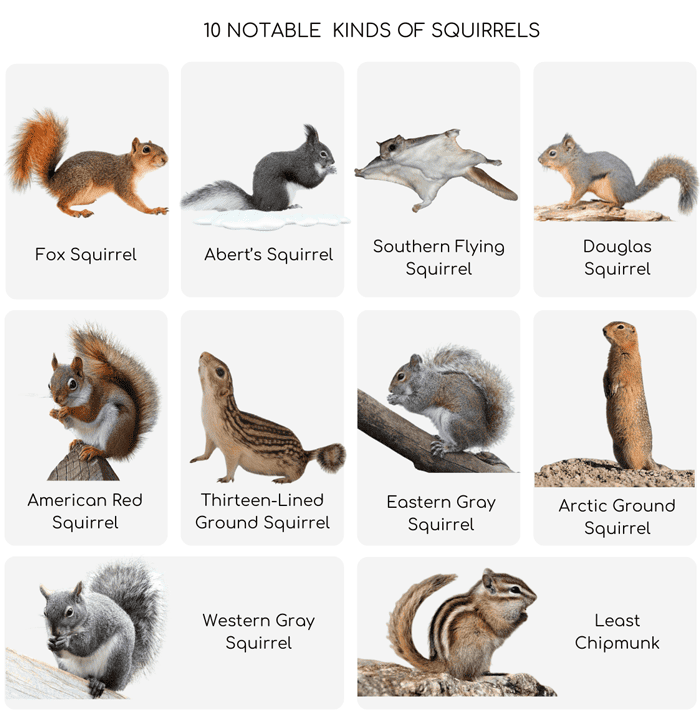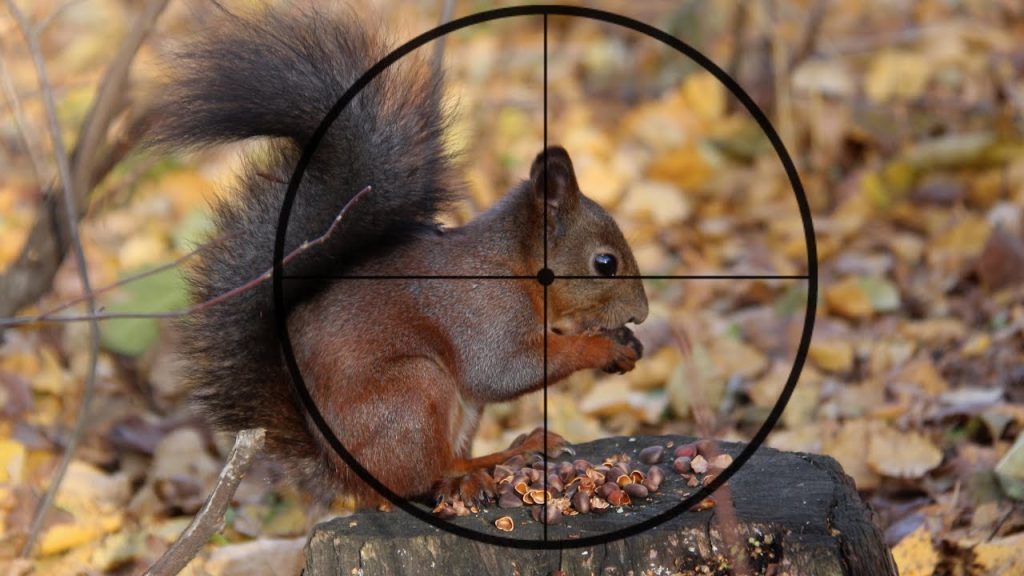Your cart is currently empty!

Squirrel Hunting Tips for Beginners: A guide to get you squirrel hunting ASAP!

Squirrel hunting – it may not have the same allure as stalking big game across expansive landscapes, but it’s a time-honored tradition that many hunters, myself included, cherish deeply. For those new to the game (pun intended!), this article aims to arm you with some of the most effective squirrel hunting tips for beginners. Let’s dive right in!
Table of Contents
Understanding Your Quarry
First and foremost, squirrel hunting isn’t merely about sighting and shooting. Understanding the animal you’re pursuing goes a long way.
There are different types of squirrels – gray, fox, and red squirrels being the most commonly hunted. Each has its own quirks. For instance, red squirrels, with their feisty nature, are more aggressive in guarding their territory than their gray counterparts. This means, if you’re out in the woods and you hear some really loud chattering, it’s probably a red squirrel voicing its displeasure.
Moreover, understanding squirrel behavior is vital. They’re diurnal creatures, which means they’re most active during the day, particularly during the early morning and late afternoon. A fun fact I learned early on: Squirrels have an uncanny knack for nut-bearing trees. Set up near one, and you’re bound to see some action.
Their diet primarily consists of nuts, but it changes throughout the seasons. In spring, they might munch on tree buds; come summer, fruits and fungi could be their choice.

Equipment Essentials
Now, onto the fun part – gear. One of my first squirrel hunts was with an old .22 caliber rifle handed down from my grandfather. It’s a popular choice among many hunters, and for good reason. The .22 offers precision and is less likely to damage the meat. If rifles aren’t your thing, air rifles and shotguns are viable alternatives. Each has its advantages. For example, shotguns might give you a better chance in areas with denser foliage.
Optics play a crucial role too. I remember one hunt where I mistook a brown leaf for a squirrel (embarrassing, I know) – a simple mistake that could’ve been avoided with a decent scope or binoculars.
When it comes to clothing, camouflage is your best friend. But don’t just pick any camo – ensure it’s suitable for the environment you’re in. Lightweight boots for those treks and safety gear are also crucial. Over the years, I’ve amassed a collection of calls, seat cushions, game bags, and even squirrel drags – each enhancing my hunting experience in its own way.
Scouting and Setting Up
Remember the old saying, “failing to prepare is preparing to fail”? It holds especially true for squirrel hunting. Scouting is something I can’t emphasize enough. Before the hunting season begins, familiarize yourself with squirrel hotspots, their movement patterns, and feeding grounds.
Choosing the right hunting spot is a game of strategy. I once set up ground blinds near a riverbank, only to realize squirrels preferred the dense oak woodland 500 meters away. Learn from my mistakes!
Weather plays a more significant role than most beginners realize. Rain might dampen your plans (literally and figuratively), as squirrels tend to stay in their nests during wet conditions. On the flip side, a crisp, clear morning can be perfect.
Strategies for Success
This is where things get exciting. While patience is a virtue in all hunting, it’s the lifeblood of squirrel hunting. During one of my most memorable hunts, I sat motionless for nearly two hours before a squirrel made its appearance.

Calling techniques can also be handy. A bark call mimics the sound of squirrels, potentially luring them closer. Distress calls, on the other hand, evoke curiosity, making them venture closer to the sound’s source.
Shot placement is paramount. Always aim for a humane, quick kill. In my early days, an experienced hunter once told me, “Respect the game, and it will respect you back.” That’s a mantra I’ve always held close.
Lastly, understanding squirrel sounds can give you a competitive edge. Recognizing their various calls, be it an alarm bark or mating chirp, can help anticipate their movements better.
Related Questions
Is squirrel hunting ethical and sustainable? Absolutely, when done responsibly. Regulated hunting seasons ensure squirrel populations remain healthy.
What can you do with the squirrel once it’s hunted? Oh, the culinary possibilities! From delicious stews to roasted squirrel, the options are endless.
How does squirrel hunting compare to hunting larger game? It’s a different beast altogether. While it might not have the grandeur of big game hunting, it’s equally thrilling and offers its own set of challenges.
What are the laws and regulations? Always check local regulations before you embark on your hunt. Different regions might have varying rules.
Summary
Squirrel hunting, with its myriad challenges and joys, is a pursuit I hold close to my heart. It teaches patience, precision, and respect for nature. I hope these squirrel hunting tips for beginners set you on the right path. Here’s to many successful hunts!

Herb has been a longtime lover of the outdoors. Whether it be hunting, camping, fishing or just getting outside to reset. Proud father and animal lover. Bourbon anyone?

by
Tags:
Comments
4 responses to “Squirrel Hunting Tips for Beginners: A guide to get you squirrel hunting ASAP!”
-
[…] ago, on one of my first squirrel hunts, I made the rookie mistake of wearing a heavy flannel shirt because, well, that’s what hunters […]
-
[…] from experience, there are two golden hours for winter squirrel hunting: the early morning and the late […]
-
[…] squirrels with a slingshot, you’re tapping into a tradition that stretches back generations. Squirrel hunting with a slingshot isn’t just about aiming and shooting; it’s a dance of patience, […]
-
[…] If you’re an avid hunter looking to expand your skills and try something new, you might be interested in learning about hunting Wyoming elk in specific units. But before you embark on your elk hunting adventure, it’s always beneficial to have a well-rounded understanding of different hunting techniques and strategies. That’s why I recommend checking out this informative article on squirrel hunting tips for beginners from Old Oak Syndicate. It provides valuable insights and advice that can be applied to various hunting scenarios, including elk hunting in Wyoming. So, if you’re ready to enhance your hunting skills and increase your chances of success, give this article a read. (source) […]

Categories
- Big Game Hunting (301)
- Deer (202)
- Reviews (3)
- Shooting (16)
- Slingshot (1)
- Small Game Hunting (42)
- Upland Hunting (126)
- Waterfowl Hunting (3)





Leave a Reply